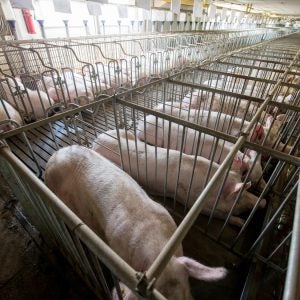The following celebrities support Humane Society International’s/The Humane Society of the United States’ Be Cruelty-Free campaign, a global effort to end animal testing for cosmetics and personal care products. Join them at hsicanada.ca/becrueltyfree.
-

Ke$ha
“True beauty doesn’t come from cruelty. That’s why I want to see an end to the testing of cosmetics and personal care products on helpless animals. Please join me in supporting HSI’s/HSUS’s Be Cruelty-Free campaign.”
-

Paul McCartney
“If every cosmetic tested on rabbits or mice had a photo on the packaging showing these animals with weeping swollen eyes and inflamed skin, I believe everyone would leave cruelty on the shelf.”
-

Michael Vartan
“I am joining with HSI’s/HSUS’s Be Cruelty-Free campaign in calling for an end to the unspeakable cruelty so many animals endure for cosmetic testing. To try to rationalize animal testing for cosmetic purposes is simply disgusting. I plead with you to choose non-animal tested products whenever possible. We are these innocent animals’ only voice.”
-

Colbie Caillet
“Everyone wants to look their best. And it’s great to know we can look and feel beautiful without causing pain to animals. HSI’s/HSUS’s Be Cruelty-Free campaign is urging companies to stop testing their products on animals. There are so many great products, from skin care products, to shampoo, to makeup, that are cruelty free—there’s just no reason to buy anything else.”
-

Bellamy Young
Supporter of HSI’s/HSUS’s Be Cruelty-Free campaign.
-

Ricky Gervais
“It’s shocking to think that behind the glamorous advertising and glossy packaging, there can lurk the ugly truth of chemicals forced down an animal’s throat.”
-

Pauley Perrette
Supporter of HSI’s/HSUS’s Be Cruelty-Free campaign.
-

Kaley Cuoco
Supporter of HSI’s/HSUS’s Be Cruelty-Free campaign.
-

Torrey Devitto
“There is just no reason for animal testing of cosmetics to continue. I support an end to this horrible practice and I’m doing my part by purchasing cruelty-free cosmetics and supporting HSUS/HSI’s Be Cruelty-Free campaign.”
-

Seamus Dever & Jon Huertas
Supporters of HSI’s/HSUS’s Be Cruelty-Free campaign.
-

Daniella Alonso
“The Be Cruelty-Free campaign is calling for an end to needless and painful cosmetic testing on animals. Join me in choosing non-animal tested products.”
-

Fiona Gubelmann
“Every time you buy lipstick, shampoo, or any cosmetic, you can help end animal suffering by purchasing cruelty-free products that haven’t been tested on animals. Join me in supporting HSI’s/HSUS’s Be Cruelty-Free campaign—it’s time for cosmetic testing on animals to end for good.”
-

Hal Sparks
Supporter of HSI’s/HSUS’s Be Cruelty-Free campaign.
-

Francia Raisa
“Many cosmetic and personal care companies still conduct painful product tests on bunnies, guinea pigs, and other animals. Be Cruelty-Free and choose non-animal tested products.”
-

Joanna Krupa
Supporter of HSI’s/HSUS’s Be Cruelty-Free campaign.
-

Owain Yeoman
Supporter of HSI’s/HSUS’s Be Cruelty-Free campaign.
-

Chrissie Hynde
“Please check for a cruelty-free guarantee before buying a product and if it is not stated on the label, put it back on the shelf!”
-

Constance Marie
Supporter of HSI’s/HSUS’s Be Cruelty-Free campaign.
-

Lindsay Pulsipher
Supporter of HSI’s/HSUS’s Be Cruelty-Free campaign.






